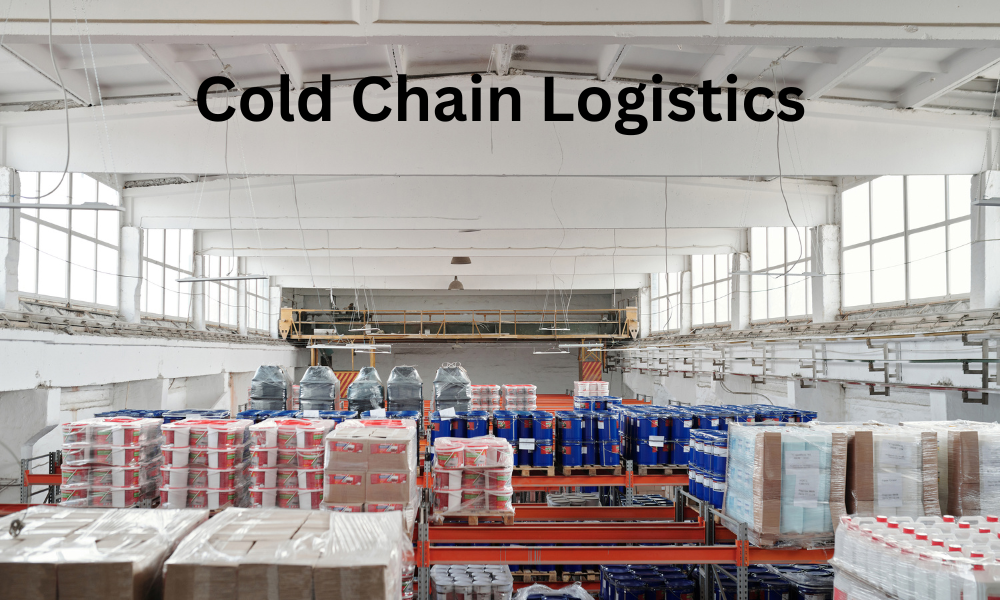
Cold chain logistics plays an important role in the global trade space, ensuring the secure and dependable transport of temperature-sensitive goods. This is especially critical in industries such as pharmaceuticals, biotechnology, and food, where the integrity and efficacy of products are connected on maintaining precise temperature conditions throughout the entire supply chain. In the realm of air cargo, the importance of cold chain logistics becomes even more pronounced due to the unique challenges and opportunities posed by air transportation.
The rapid transit times associated with air freight create an environment where maintaining consistent and controlled temperatures becomes more challenging, making the expertise of cold chain logistics providers crucial. The precise coordination of temperature-controlled storage, handling, and transportation is imperative to safeguard the quality and safety of perishable goods during their journey through the skies, underscoring the indispensability of cold chain logistics in the air cargo industry.
Preserving Product Integrity:
The booming importance of cold chain logistics in air cargo can be attributed to the critical need for preserving the integrity of perishable goods, a diverse category that includes pharmaceuticals, fresh produce, and biotechnological products. These sensitive items demand precise temperature control throughout the entire transportation process to ensure their safety, efficacy, and freshness upon reaching their destination. Air cargo stands out as an ideal mode of transport for such products due to its unparalleled speed and efficiency. The swift delivery capabilities of air transportation help minimize transit times, reducing the risk of temperature deviations and maintaining the required cold chain conditions.
However, the efficacy of air cargo in preserving perishable goods hinges on the meticulous maintenance of the cold chain, encompassing temperature-controlled storage, handling, and transportation processes. As global trade in these temperature-sensitive commodities continues to grow, the importance of a robust and reliable cold chain within the air cargo industry becomes increasingly paramount to meet the demanding standards and regulatory requirements associated with these vital goods.
Globalization of Supply Chains:
As businesses expand their operations globally, the intricacies of supply chains become increasingly complex, involving the seamless movement of goods across vast distances and diverse climates. In this dynamic landscape, air cargo emerges as a solution, offering swift transit times that address the urgency associated with international trade. However, the challenge lies in guaranteeing the integrity of temperature-sensitive cargo, such as pharmaceuticals, fresh produce, or other perishable goods, throughout its journey. This is where cold chain logistics becomes a key factor in safeguarding the quality and viability of products as they fly across the sky. The meticulous management of temperature control, from the moment the cargo is loaded onto the aircraft to its final destination, ensures that goods arrive in optimal condition, meeting precise quality standards and regulatory requirements. The seamless integration of cold chain logistics within air cargo operations not only preserves the integrity of the transported goods but also reinforces the reliability and efficiency of global supply chains.
Regulatory Compliance:
In an era marked by stringent regulations and uncompromising quality standards, adherence to compliance has become an imperative, especially in industries like pharmaceuticals and food where the transportation of goods demands meticulous temperature control. Non-compliance not only poses a significant risk to product integrity but also exposes businesses to severe legal implications.
Cold chain logistics in air cargo emerges as a dependable solution to meet and surpass these regulatory demands. By ensuring the precise maintenance of temperature-sensitive products throughout the transportation process, cold chain logistics not only safeguards product quality but also establishes a foundation of trust and accountability in the supply chain. Companies that prioritize and implement robust cold chain solutions demonstrate a commitment to regulatory standards, fostering confidence among stakeholders and reinforcing the integrity of the products they handle.

Minimizing Losses and Waste:
Cold chain logistics plays a crucial role in safeguarding the integrity of goods during transit, particularly in the context of air cargo. The susceptibility of certain products to temperature variations poses a significant risk of spoilage and financial losses for businesses. To address this challenge, the cold chain employs advanced temperature-monitoring systems and specialized packaging, creating a seamless and controlled environment for sensitive goods.
In air cargo, the swiftness of transportation becomes a strategic advantage, as it significantly reduces the overall time products spend in transit. The rapid movement of goods minimizes the window for temperature variations, ensuring that products reach their destination swiftly and in optimal condition. This not only improves the quality and safety of the transported goods but also contributes to the overall efficiency of the supply chain. By reducing the risks associated with temperature fluctuations, cold chain logistics in air cargo becomes a vital component in preserving the quality and value of perishable items, thereby minimizing financial losses for businesses.
Enhancing Customer Satisfaction:
In the contemporary landscape of consumer expectations, the demand for products of superior quality coupled with swift delivery has become paramount. Cold chain logistics in air cargo emerges as a crucial solution to meet these heightened consumer demands by safeguarding the integrity, freshness, and efficacy of a diverse range of goods. Whether it involves the transportation of life-saving medications, precision-engineered vaccines, or exotic perishable foods, the meticulous maintenance of the cold chain is instrumental. This specialized logistics system involves the controlled transport of temperature-sensitive goods, ensuring that they remain within specified temperature ranges throughout the entire supply chain.
The significance of cold chain logistics lies not only in preserving the physical attributes of the products but also in upholding their intrinsic value. By using advanced refrigeration technologies and stringent monitoring protocols, this method ensures that customers receive their orders in optimal condition. The positive outcome is a heightened level of customer satisfaction and loyalty, as consumers can trust that the products they receive are not only of the highest quality but have also been handled with precision to retain their freshness and efficacy. In essence, cold chain logistics in air cargo plays a pivotal role in meeting and exceeding consumer expectations, contributing to an enhanced customer experience and reinforcing brand loyalty in an era where product quality and swift delivery are non-negotiable.
The intricate web of global trade relies heavily on the seamless and efficient movement of goods across borders, and within this complex network, the significance of cold chain logistics in air cargo cannot be overstated. Cold chain logistics refers to the management of temperature-sensitive products throughout the supply chain, and in the context of air transportation, it plays an important role in preserving product integrity, meeting regulatory standards, minimizing losses, and improving overall customer satisfaction.
As industries continue to evolve and expand across borders, the role of cold chain logistics in air cargo is poised to become even more vital. The globalization of supply chains and the increasing demand for high-value, temperature-sensitive products necessitate a sophisticated and reliable cold chain infrastructure. Investing in cutting-edge technology, robust transportation systems, and stringent quality control measures will be essential for businesses looking to thrive in the dynamic landscape of global trade. In conclusion, the meticulous management of temperature-sensitive goods during air transportation is not merely a logistical necessity but a strategic imperative for businesses aiming to participate and excel in the global marketplace. If you need any cargo assistance in Duchland contact the Best Air Freight Company in Netherland.
